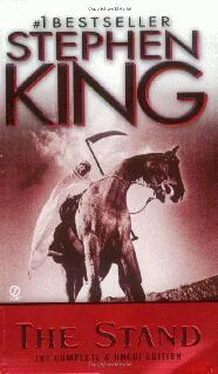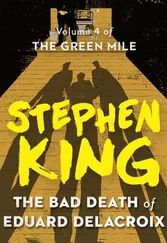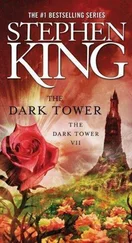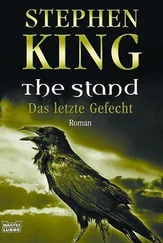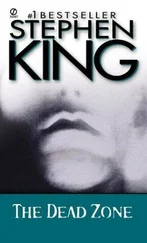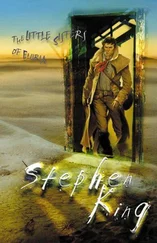Life History
By Nick Andros
He stopped, smiling a little. He had been in some funny places, but never in his wildest dreams had he expected to be sitting in a sheriff’s office, deputized, in charge of three men who had beaten him up, and writing his life story. After a moment he began to write again:
I was born in Caslin, Nebraska, on November 14, 1968. My daddy was an independent farmer. He and my mom were always on the edge of getting squeezed out. They owed three different banks. My mother was six months pregnant with me and my dad was taking her to see the doctor in town when a tie rod on his truck let go and they went into the ditch. My daddy had a heart attack and died.
Anyway, three months after, my mom had me and I was born the way I am. Sure was a tough break on top of losing her husband that way.
She carried on with the farm until 1973 and then lost it to the “big operators,” as she always called them. She had no family but wrote to some friends in Big Springs, Iowa, and one of them got her a job in a bakery. We lived here until 1977 when she was killed in an accident. A motorcycle hit her while she was crossing the street on her way home from work. It wasn’t even his fault but only bad luck as his brakes failed. He wasn’t even speeding or anything. The Baptist Church gave my mamma a charity funeral. This same church, the Grace Baptist, sent me to the Children of Jesus Christ orphanage in Des Moines. This is a place that all sorts of churches chip together to support. That was where I learned to read and write…
He stopped there. His hand was aching from writing so much, but that wasn’t why. He felt uneasy, hot and uncomfortable at having to relive all that again. He went back to the jail quarters and looked in. Childress and Warner were asleep. Vince Hogan was standing by the bars, smoking a cigarette and looking across the corridor at the empty cell where Ray Booth would have been tonight if he hadn’t run so quick. Hogan looked as if he might have been crying, and that led him back in time to that small mute scrap of humanity, Nick Andros. There was a word he had learned at the movies as a kid. That word was INCOMMUNICADO. It was a word that had always had fantastic, Lovecraftian overtones to Nick, a fearful word that echoed and clanged in the brain, a word that inscribed all the nuances of fear that live only outside the sane universe and inside the human soul. He had been INCOMMUNICADO all his life.
He sat down and re-read the last line he’d written. That was where I learned to read and write . But it hadn’t been as simple as that. He lived in a silent world. Writing was code. Speech was the moving of lips, the rise and fall of teeth, the dance of a tongue. His mother had taught him to read lips, and had taught him how to write his name in struggling, sprawling letters. That’s your name , she had said. That’s you, Nicky . But of course she had said it silently, meaninglessly. The prime connection had come when she tapped the paper, then tapped his chest. The worst part about being deaf-mute was not living in the silent movie world; the worst part was not knowing the names of things. He had not really begun to understand the concept of naming until he was four. He had not known that you called the tall green things trees until he was six: He had wanted to know, but no one had thought to tell him and he had no way to ask: he was INCOMMUNICADO.
When she died he had retreated almost all the way. The orphanage was a place of roaring silence where grim-faced thin boys made fun of his silence; two boys would run up to him, one boy with his hands plastered over his mouth, one boy with his hands plastered over his ears. If none of the staff happened to be near, they would punch him out. Why? No reason. Except that maybe in the vast white class of victims there is a subclass: the victims of victims.
He stopped wanting to communicate, and when that happened the thinking process itself began to rust and disintegrate. He began to wander from place to place vacantly, looking at the nameless things that filled the world. He watched groups of children in the play yard move their lips, raise and lower their teeth like white drawbridges, dance their tongues in the ritual mating of speech. He sometimes found himself looking at a single cloud for as long as an hour at a time.
Then Rudy had come. A big man with scars on his face and a bald head. Six feet, five inches tall, might as well have been twenty to runty Nick Andros. They met for the first time in a basement room where there was a table, six or seven chairs, and a TV that only worked when it felt like it. Rudy squatted, putting his eyes on approximately the same level as Nick’s. Then he took his huge, scarred hands and put them over his mouth, his ears.
I am a deaf-mute .
Nick turned his face sullenly away: Who gives a fuck?
Rudy slapped him.
Nick fell down. His mouth opened and silent tears began to leak from his eyes. He didn’t want to be here with this scarred troll, this bald boogey. He was no deaf-mute, it was a cruel joke.
Rudy pulled him gently to his feet and led him to the table. A blank sheet of paper was there. Rudy pointed at it, then at Nick. Nick stared sullenly at the paper and then at the bald man. He shook his head. Rudy nodded and pointed at the empty paper again. He produced a pencil and handed it to Nick. Nick put it down as if it were hot. He shook his head. Rudy pointed at the pencil, then at Nick, then at the paper. Nick shook his head. Rudy slapped him again.
More silent tears. The scarred face looking at him with nothing but deadly patience. Rudy pointed at the paper again. At the pencil. At Nick.
Nick grasped the pencil in his fist. He wrote the four words that he knew, calling them forth from the cobwebby, rusting mechanism that was in his thinking brain. He wrote:
NICHOLAS ANDROS
FUCK YOU
Then he broke the pencil in half and looked sullenly and defiantly at Rudy. But Rudy was smiling. Suddenly he reached across the table and held Nick’s head steady between his hard, callused palms. His hands were warm, gentle. Nick could not remember the last time he had been touched with such love. His mother had touched him like that.
Rudy removed his hands from Nick’s face. He picked up the half of the pencil with the point on it. He turned the paper over to the blank side. He tapped the empty white space with the tip of the pencil, and then tapped Nick. He did it again. And again. And again. And finally Nick understood.
You are this blank page .
Nick began to cry.
Rudy came for the next six years.
… where I learned to read and write. A man named Rudy Sparkman came to help me. I was very lucky to have him. In 1984 the orphanage went broke. They placed as many kids that they could, but I was not one of them. They said I would get in with a family after a while and the state would pay them for keeping me. I wanted to go with Rudy but Rudy was in Africa working for the Peace Corps.
So I ran away. Being sixteen, I don’t think they looked for me too hard. I figured if I could stay out of trouble I would be all right, and so far so good. I have been taking the high school correspondence courses one at a time, because Rudy always said education is the most important. When I settle down for a while I’m going to take that high-school equivalency test. I will be able to pass it soon. I like school. Maybe I will go to college someday. I know that sounds crazy, a deaf-mute bum like me, but I don’t think it’s impossible. Anyway, that’s my story.
Yesterday morning Baker had come in around seven-thirty while Nick was emptying wastebaskets. The sheriff looked better.
“How you feeling?” Nick wrote.
“Pretty good. I was burnin up until midnight. Worst fever I’ve had since I was a kid. Aspirin didn’t seem to help it. Janey wanted to call the doc, but around twelve-thirty the fever just broke. I slep like a log after that. How are you doing?”
Читать дальше
